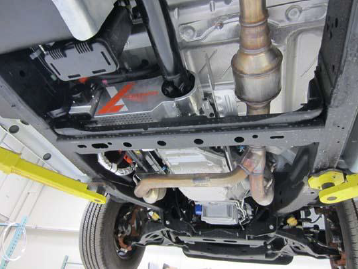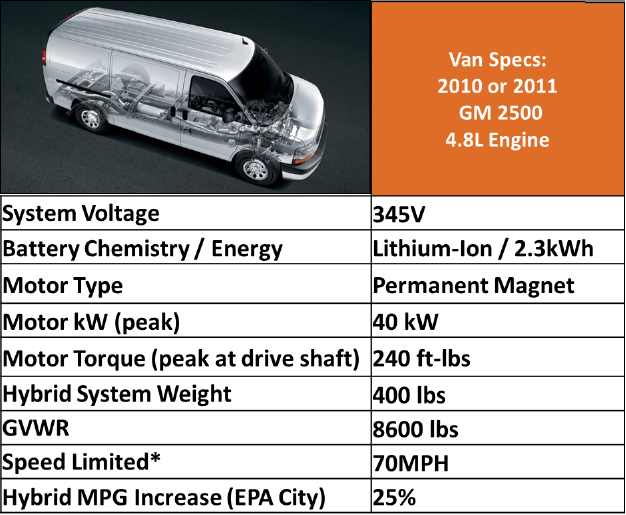Commercial vehicle conversion kit makes aftermarket hybrids
 An aftermarket automotive start-up wants to make hybrid drivetrains more accessible for businesses that are seeking to manage rising fuel costs in their commercial fleets. Could the consumer market be very far behind?
An aftermarket automotive start-up wants to make hybrid drivetrains more accessible for businesses that are seeking to manage rising fuel costs in their commercial fleets. Could the consumer market be very far behind?XL Hybrids, founded in Boston by MIT alumni, is on track to roll out its conversion kit in select markets this year, with a nationwide launch expected in 2013. Its current customers are in pilots, but it declines to name names other than to mention the participation of an “iconic brand.”
The kit features an electric motor, lithium ion battery pack, and control software to vehicles. XL’s target price is under US$8,000 fully installed. Aftermarket installers make the conversion, and it does not void commercial vehicle warrantees, said Justin Ashton, XL’s vice president of business development.
Most class three trucks (light duty trucks and cargo vans) will achieve payback in as little as three years, Ashton noted. “The few OEM hybrids that are available are extremely expensive, and there’s no payback on investment.”
That’s a world of difference from heavy trucks where the payback based on fuel savings is around 23 years. The incremental cost of making a hybrid diesel truck is typically US$25,000-$75,000 depending on the size of the truck.
Some experts in hybrid diesel trucking believe that there is a need for a federal incentive program modeled after the California Air Resources Board’s Hybrid Truck and Bus Voucher Incentive Project (HVIP).
XL Hybrids’ business model is solving what it believes to be a major market need, and doesn’t rely upon government subsides. It much more likely that converted hybrids will be on the road before large fleets of diesel hybrids are making long hauls.
There already are a number of hybrid conversion companies located throughout the United States including Michigan’s ALTe Powertrain Technologies. Some California companies, including 3Prong Power, convert hybrids into plug-in hybrids.
Automakers work with the commercial aftermarket industry, and unlikely to do the same for consumers. However, Americans are keeping their cars longer, and gas pricing are unlikely to fall appreciably. I’m left wondering whether there could be an aftermarket for out of warranty consumer vehicles.
Here’s the specs on XL’s system:

You can return to the main Market News page, or press the Back button on your browser.

